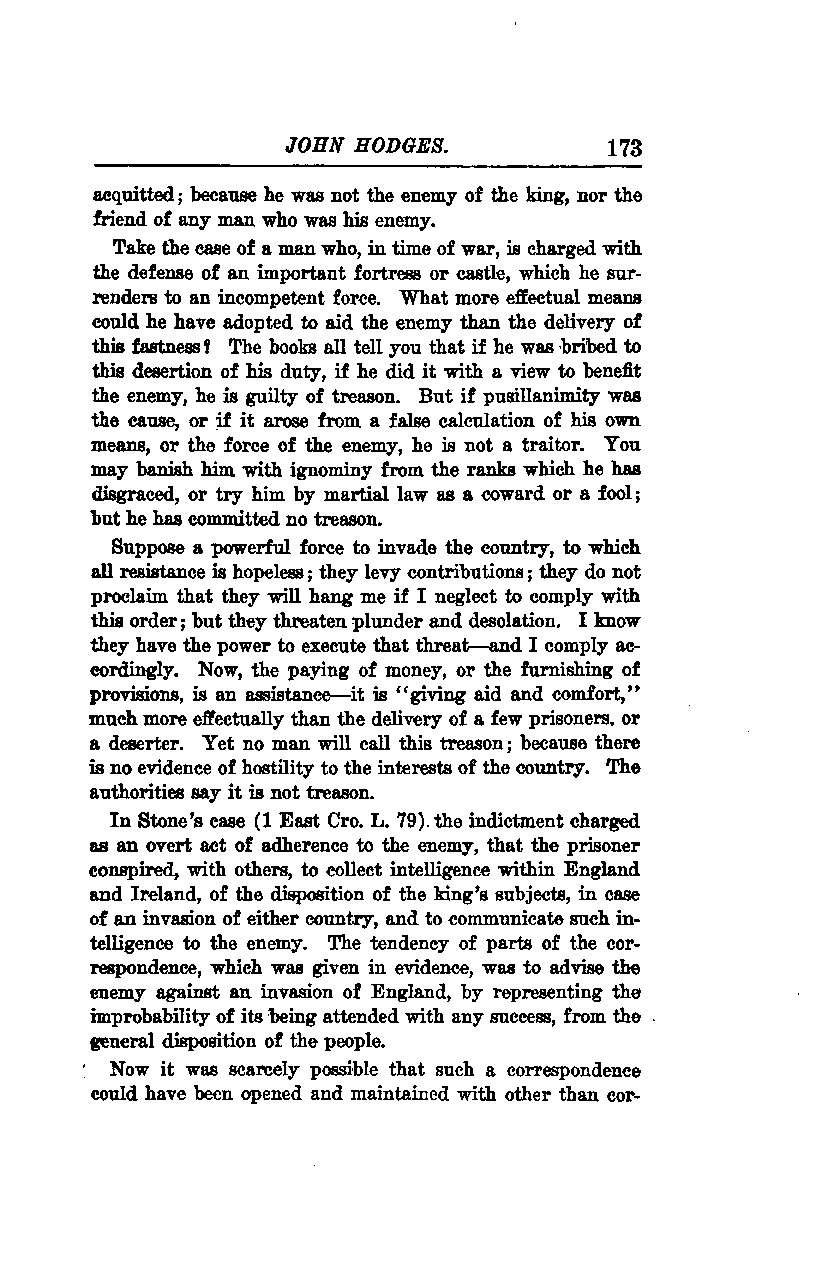
Here is the translated text as follows:
JOHN HODGES. 173
A man acquitted of treason may not be the enemy of the king, nor the friend of any man who is his enemy.
Consider the case of a man who, in time of war, is charged with the defense of an important fortress or castle, which he surrenders to an incompetent force. What more effective means could he have adopted to aid the enemy than the delivery of this stronghold? The books all tell you that if he was bribed to this desertion of his duty, if he did it with a view to benefit the enemy, he is guilty of treason. But if pusillanimity was the cause, or if it arose from a false calculation of his own means or the force of the enemy, he is not a traitor. You may banish him with ignominy from the ranks which he has disgraced, or try him by martial law as a coward or a fool; but he has committed no treason.
Suppose a powerful force invades the country, to which all resistance is hopeless; they levy contributions; they do not proclaim that they will hang me if I neglect to comply with this order, but they threaten plunder and desolation. I know they have the power to execute that threat—and I comply accordingly. Now, the paying of money, or the furnishing of provisions, is assistance—it is "giving aid and comfort," much more effectively than the delivery of a few prisoners or a deserter. Yet no man will call this treason, because there is no evidence of hostility to the interests of the country. The authorities say it is not treason.
In Stone's case (1 East Cro. L. 79), the indictment charged as an overt act of adherence to the enemy that the prisoner conspired with others to collect intelligence within England and Ireland of the disposition of the king's subjects, in case of an invasion of either country, and to communicate such intelligence to the enemy. The tendency of parts of the correspondence, which was given in evidence, was to advise the enemy against an invasion of England by representing the improbability of its being attended with any success, due to the general disposition of the people.
It was scarcely possible that such a correspondence could have been opened and maintained with other than corrupt motives.
---